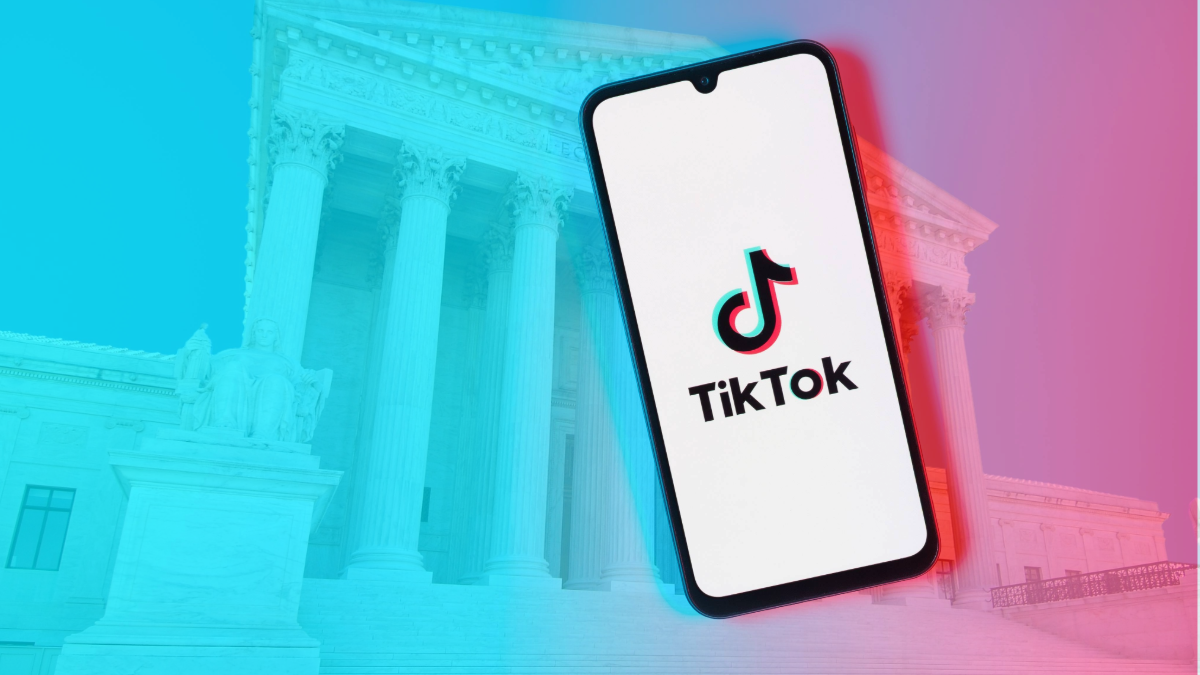TikTok Should Win Its Supreme Court Case—Or We Could All Lose Free Speech Online
Caitlin Vogus / Jan 9, 2025Caitlin Vogus is a senior advisor for advocacy at Freedom of the Press Foundation and a First Amendment attorney.
With the TikTok argument headed for the Supreme Court on Friday, it’s become increasingly common to read about the so-called “easy” path for affirming the TikTok ban: treat it like a radio station, where foreign ownership has long been prohibited.
D.C. Circuit Chief Judge Sri Srinivasan even suggested this approach in his concurring opinion in the TikTok case. He wrote that the ban should be subjected to a lower level of constitutional scrutiny — making it easier to uphold it — because of a history of allowing bans on foreign ownership of radio licenses.
It’s a tempting idea. As a press freedom and privacy advocate, I’m no fan of TikTok, which is known for collecting massive amounts of user data (like most social media apps) and spying on journalists. It’s also true that the government has long had a freer hand to regulate certain channels of mass communications, specifically radio and broadcast television. If the government can ban foreigners from owning broadcast licenses, why not also social media apps?
But taking the so-called easy way out in the TikTok ban case would be a mistake that would harm free speech online for everyone, and violate decades-old Supreme Court precedent.
Let’s start with the precedent. The Supreme Court has been very clear that lesser First Amendment protections for radio and broadcast TV are the exception, not the rule. That exception is based mainly on the historical scarcity of available broadcast frequencies, which required the government to step in and establish a system for assigning and regulating broadcast spectrum.
That scarcity doesn’t exist in the real world or on the internet. That’s why, in its groundbreaking decision in Reno v. ACLU in 1997, the Supreme Court explicitly said that the First Amendment protects against government restrictions of online speech just as much as it does for offline speech. In Reno, the Court specifically rejected the argument being urged today in the TikTok case — that it should treat the internet like broadcasters under the First Amendment.
But it’s not just precedent that should convince us that the Supreme Court would be wrong to treat TikTok like a radio station. Lowering the First Amendment standard that applies to a ban on foreign ownership of a social media app would also mean lowering it for other government restrictions on online speech.
The lower First Amendment protections for radio and broadcast television don’t just allow the government to prohibit foreign ownership. They also give the government significant control over the speech allowed on those mediums, control that isn’t currently allowed online or in the real world. That’s why the FCC can punish a radio station for playing George Carlin’s “Seven Dirty Words” but not HBO, or require “equal time” for political candidates on broadcast TV stations when it could never require the same in the pages of a newspaper.
If we give the government a freer hand to regulate the internet the way they do radio and broadcast TV, it won’t be long before officials are trying to ban speech that embarrasses or criticizes them and stamp out content they disagree with.
In fact, officials already try to use their existing power over broadcasters to do exactly that. Incoming FCC Chair Brendan Carr, for example, has made no secret of the fact that he believes the national news media is biased against President-elect Donald Trump, and he plans to use (or abuse) the FCC’s power to influence their coverage. Just last month, Carr threatened to scrutinize ABC News’ negotiations with its affiliated stations across the US, which are subject to FCC regulation, specifically citing ABC News’ reporting on Trump that led to a defamation lawsuit and settlement.
Politicians are salivating for the same power to control speech online. Republicans have already attempted to prohibit so-called “conservative censorship” online and ban information on topics like reproductive or transgender healthcare. And it’s not just Republicans that want to shape online speech in ways they see fit. Democrats also try to pressure and coerce online platforms to fit their agendas.
The only thing stopping them is the First Amendment. Lowering the legal standard that constrains these attempts so the government can forbid a Chinese company from owning TikTok has the potential to unleash a wave of government censorship over the internet.
Unfortunately, there’s no way to get around this censorial impact by writing a “well-drafted, narrowly tailored Supreme Court opinion permitting the government to ban foreign ownership of major US communications platforms — and nothing else.” Even such a purportedly narrow ruling would allow the government to use foreign ownership as a pretext for banning speech it disagrees with. It’s not hard to imagine, for example, the Trump administration using this “narrow” power to ban the Al Jazeera app while allowing Americans to download RT’s app freely.
But actually, we don’t have to imagine it, because the evidence strongly suggests that “foreign ownership” isn’t the real motivation for the TikTok ban—officials’ disagreement with content on the app is. Some of the law’s biggest cheerleaders in Congress stated outright that they wanted to ban TikTok because American users are posting “pro-Palestinian content” and potentially influencing public opinion about Israel’s war in Gaza.
It’s also not clear that such a “narrow” ruling would be limited to social media apps or even the internet. Would app stores be considered “major US communications platforms”? (Apple’s App Store and Google Play are US-owned, but other app stores aren’t.) How about VPNs? Online news sites? Cable news? Newspapers? The possibilities for government censorship abound.
There’s only one way to avoid this outcome. The Supreme Court should subject the TikTok ban to strict scrutiny—the highest constitutional standard—and strike it down for failing to meet that standard. The Court should reaffirm its ruling in Reno that the First Amendment applies fully to the internet, and it should reject the hypothetical national security harms the government posits to justify that TikTok ban as wholly insufficient under existing precedent.
But the Court’s refusal to weaken the First Amendment to allow the government to ban TikTok doesn’t have to be the end of the story. Congress can and should still address the real problems that social media apps like TikTok and others (including American-owned apps) pose.
Worried about user privacy? Pass comprehensive privacy legislation that regulates the ability of all social media companies operating in the U.S. to suck up massive amounts of users’ data. Concerned about governments using social media data to spy on Americans? Pass the Fourth Amendment Is Not for Sale Act and ban companies from selling data to the US government without a warrant.
And if Congress is truly troubled by the idea that China is covertly manipulating content on TikTok to warp Americans’ minds, it should deal with that problem the way we always have in this country: through more speech and more information, not bans. Transparency and disclosure requirements regarding foreign app ownership are a much less constitutionally suspect way of confronting this problem, rather than paternalistic and authoritarian bans.
TikTok isn’t a radio station. If the Supreme Court treats it like one, it will open the floodgates to government control of other social media apps and the internet as a whole. No matter how concerned you are about TikTok, that’s not an outcome anyone should be rooting for.
Authors

